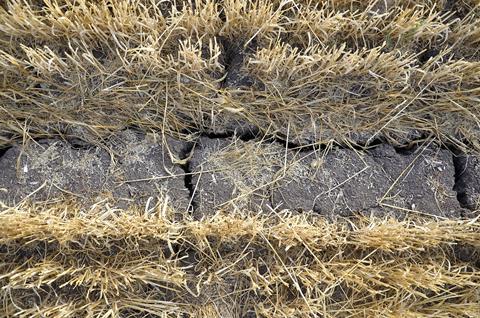Emerging microbiome tools could improve content and diversity of soil organic matters in degraded soils, a new study suggests.
The study, resulting from an international collaboration between researchers from the Western Sydney University and Spanish public institutions proposes that the use of certain types of microbes with higher carbon use efficiency could promote soil organic matter (SOM) diversity and, ultimately, soil organic carbon (SOC) accumulation.

The paper, ‘New microbial tools to boost restoration and soil organic matters’, has been accepted for Microbial Biotechnology, an Applied Microbiology Interational publication.
Degraded soils
Corresponding author Tadeo Saez-Sandino said: “Soils provide 98.7% of the calories consumed by humans, but one-third of all land areas in the world are already degraded to some extent. This study has focused on new microbial tools that provide adequate levels of soil carbon - ie. healthy soils - at the earliest timeframe to enhance the outcomes of restoration activities.
“Promoting SOM diversity emerges as a potential driver of SOC because it can control slow microbial decomposition (ie, increased SOM pools). Although historically microbial respiration is known to cause major carbon losses in soils, soil microbes also contribute substantially to SOM pools by releasing microbial products.
“This study proposed, for the first time, that the use of certain types of microbes (microbes with higher C use efficiency) could promote SOM diversity and, ultimately, SOC accumulation.
New microbial tools
“The use of new microbial tools can achieve these objectives. For example, inoculation with plant growth-promoting microbes (PGPMs), new synthetic communities, emerging in-situ microbiome engineering tools and/or transplantation of soil from healthy ecosystems, which can provide biodiversity and improve soil structure, are significant promise to manipulate soil microbial communities.”
Dr Saez said that although the use of microbiome tools is in its infancy, their research offers an unprecedented opportunity to create new industries, boost economic growth and job creation, and ultimately, regional prosperity with better environmental and social outcomes.
“Humanity faces multiple global challenges (eg, land use, forest fires, pollution, deforestation, overgrazing), which are degrading our soils at an unprecedented rate,” he said.
“We believe that these new tools based on soil microbiome and SOM diversity can enhance the efficiency and consistency of restoration outcomes. There is an urgent need to employ these restoration approaches to ensure soil health and ensure food security.”
Challenging times
Use of these new microbial tools will face numerous challenges, he said.
“For example, limited success under field conditions because new microbial communities compete with indigenous microbes. Moreover, it could introduce pathogens, pests, and invasive species, which can have long-term impacts on ecosystem recovery,” he said.
“Future work should utilize new analytical tools (meta-omics, gene editing, CRISPR-CAS) that provide golden opportunities to systematically address these limitations.”
The study was led by Dr. Brajesh K. Singh from Western Sydney University. Mr. Tadeo Sáez-Sandino from Universidad Pablo de Olavide, Dr. Manuel Delgado-Baquerizo from Unidad Asociada CSIC-UPO (BioFun), and Dr. Eleona Egidi, Western Sydney University, wrote the paper and contributed to the drafts.
‘New microbial tools to boost restoration and soil organic matters’ appears in Microbial Biotechnology.
Topics
- Applied Microbiology International
- Asia & Oceania
- Brajesh K. Singh
- Community
- Eleona Egidi
- Food Security
- Healthy Land
- Manuel Delgado-Baquerizo
- plant growth-promoting microbes
- Research News
- Soil & Plant Science
- soil organic carbon
- soil organic matter
- Tadeo Saez-Sandino
- UK & Rest of Europe
- Unidad Asociada CSIC-UPO
- Universidad Pablo de Olavide
- Western Sydney University







No comments yet